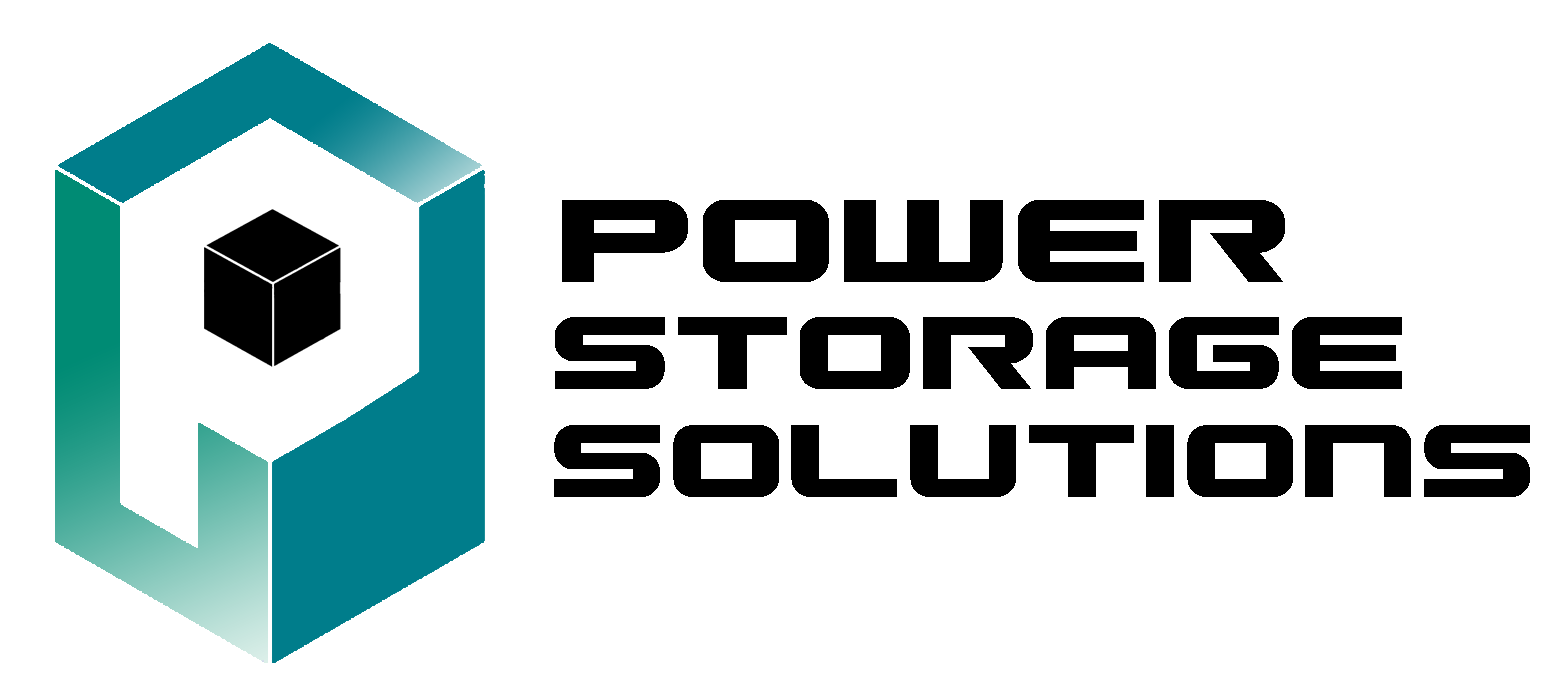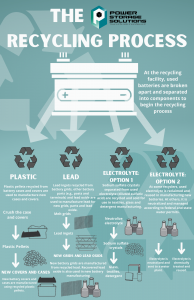Lead acid batteries are one of the most recycled consumer products in the world today – more than 99% of the materials in every lead acid battery can be recycled and used to make new batteries. With its long history of sustainability and focus on recovering materials for recycling, the U.S. lead battery manufacturing and recycling industry essentially forms a closed loop, circular system.
All of the recycled components go back into the production of new batteries, preventing waste from entering landfills, protecting environmental health, and minimizing battery production costs.
The U.S. lead battery recycling industry can serve as a model for other industries striving to eliminate waste and make their manufacturing and recycling processes more sustainable.
There are several factors driving the lead acid battery recycling effort, including federal regulations requiring consumers to properly dispose of spent batteries and taxes on new battery sales to ensure old battery cores get turned in for recycling.
As a company, it is more costly not to properly return your spent batteries at the time of purchasing a new system than it is to return them. The U.S. Environmental Protection Agency (EPA) highly regulates the proper disposal and cleanup of lead-related products. Having a trusted, insured, and approved partner to ensure this process is properly managed reduces your risk of fines, penalties, and cost.
Nothing wasted
After a partner like Power Storage Solutions removes a spent battery system, it is transported to a warehouse and sorted. Ownership of the scrap is passed from your company to the partner, eliminating all future EPA liability for your company. The spent batteries are ultimately taken to a carefully selected, EPA-approved and insured recycling facility located in the United States.
Each battery is then broken apart and separated into its various components for recycling. Every part of the battery is recyclable, from the plastic to the lead to the acid. Plastic from battery cases and covers is broken down into pellets and used to manufacture new cases and covers. Lead from battery grids and terminals is recycled and used to manufacture new grids and parts. Used battery electrolyte is processed into sodium sulfate, recycled, and sold for use in textiles, glass, and detergent manufacturing.
Lead from batteries can be reused continuously without losing future performance capacity, making it essentially infinitely recyclable.
This closed loop recycling and manufacturing system prevents more than 1.7 million tons of batteries from ending up in landfills annually while decreasing battery production costs.
Domestic supply chain
Most lead acid batteries manufactured in the United States are made from domestically-sourced raw and recycled materials. This robust, domestic supply chain for lead batteries reduces reliance on materials that need to be imported from other countries.
Over 90 percent of lead batteries in the United States are supplied by North American manufacturing, and about 73 percent of the lead used for battery manufacturing in the United States is recycled.
Low-risk process
Proper recycling of lead batteries makes it possible for battery components to be recovered, processed, and recycled or reused in a way that is safe and sustainable.
To ensure proper battery recycling, service providers like Power Storage Solutions can provide you with information regarding battery decisions, advise on the safe handling of batteries, and provide battery recycling services for the lead, plastic, and acid according to federal standards. Power Storage Solutions partners with battery recycling companies to ensure spent batteries are properly packaged and safely transported to approved smelters around the country.
As an additional assurance to our clients, Power Storage Solutions, also carries an additional $10M insurance rider specifically covering financial liability due to environmental pollution. This insulates you and your company from any financial liability arising out of the improper handling of spent lead acid batteries, making the process as safe any low-risk for your company as possible.
For more information, visit https://microgrid-design.com/ or call (346) 299-2124



Recent Comments